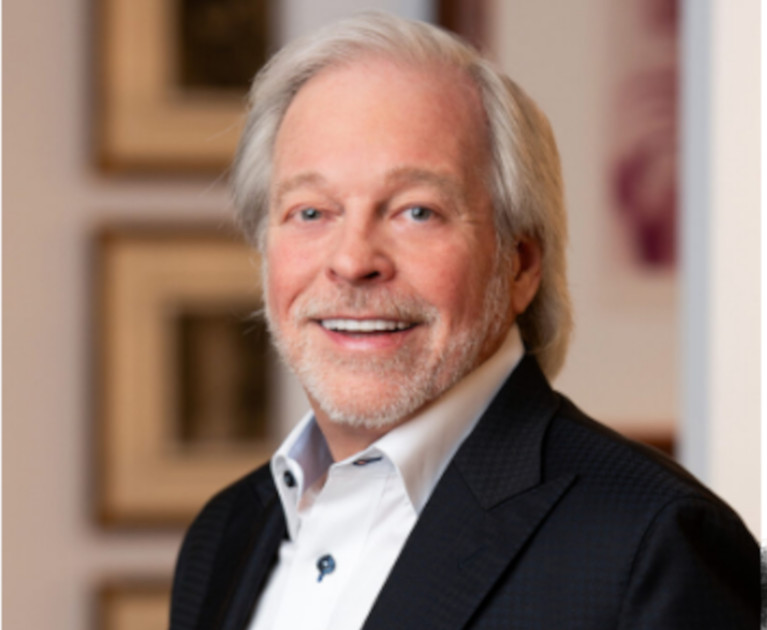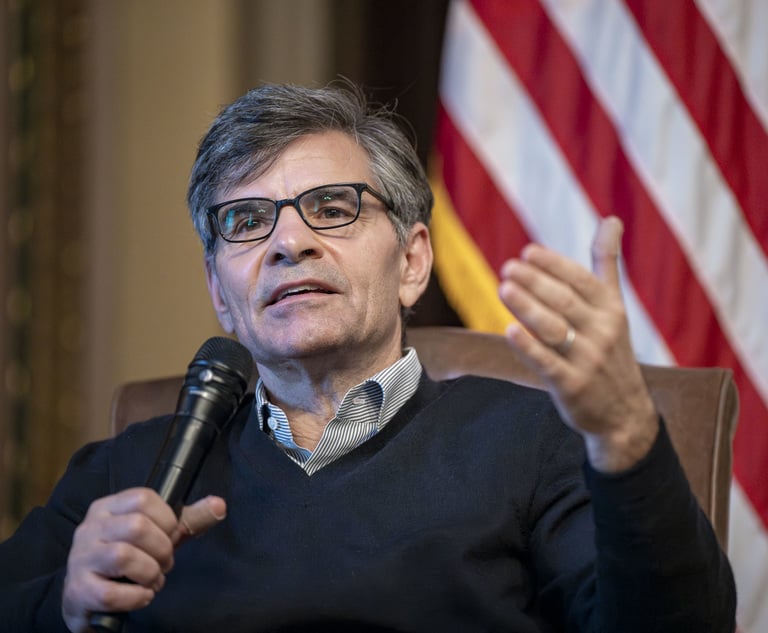 The Fourth District Court of Appeal judges. Courtesy photo.
The Fourth District Court of Appeal judges. Courtesy photo.South Florida Court Warns Against 'Novel' Discovery Methods Aimed at Corporations
No more novel discovery methods: An opinion from Florida's Fourth District Court of Appeal sends a message about pushing the boundaries.
June 18, 2019 at 12:01 PM
4 minute read
The Fourth District Court of Appeal sent a word of warning to trial lawyers and courts with an opinion clarifying that corporations are covered by the same protections as the expert witnesses they're affiliated with and shouldn't be subject to methods aimed at stretching the boundaries of discovery.
“We caution trial counsel from employing, and trial courts from approving, novel discovery methods which exceed the limits of authorized discovery,” the opinion said.
The underlying dispute between a plaintiff in a personal injury case and the medical practice employing an expert witness for the defense presented a matter of first impression for the Fourth DCA.
Orthopedic Center of South Florida had asked the court to quash a discovery order from Michael Sode, treated by one of its doctors after he was hit by a van because his bicycle had got caught on some flyaway fencing.
Sode sued a Broward construction company in June 2017 but instead of seeking information from the doctor who performed his compulsory medical exam, the plaintiff subpoenaed Orthopedic Center of South Florida, asking for a variety of information about the practice, including its business model, revenue history, consulting and marketing practices, and the names of everyone with ownership interest and how they profit from the business.
The center argued the plaintiffs' requests for specific financial information “for reference purposes only” were invasive and beyond the scope of permissible discovery under Florida's Rules of Civil Procedure.
But Sode argued it was fair game because corporations aren't entitled to the same subpoena protections as their individual experts.
The Fourth DCA disagreed, finding that the discovery methodology was improper and granted a protective order for the orthopedic center. Plaintiffs attorneys Andrew A. Harris of Burlington & Rockenbach in West Palm Beach and Thomas H. Leeder of Leeder Law in Plantation did not respond to requests for comment by deadline.
The court looked to Elkins v. Syken, where the Florida Supreme Court “recognized the necessity of striking a balance between a party's need for information to demonstrate a medical expert's potential bias, with the expert's right to be free from burdensome and intrusive discovery requests.”
From that, Rule 1.280(b)(5) was born, limiting discovery from experts who are hired by one party.
|'Wheel it back in'
It was a battle the orthopedic center “felt it was necessary to fight,” according to its attorney, Richard A. Jarolem of Traub Lieberman Straus & Shrewsberry in Palm Beach Gardens. Jarolem, who represents various expert witnesses, said this case is an extreme example of the “gamesmanship” he often sees in discovery, especially involving financial information and experts' past testimony in other cases.
“Almost every day I see discovery requests that are what I believe beyond the scope of Rule 1.280(b)(5) and Elkins,” Jarolem said.
Jarolem conceded that plaintiffs and defense attorneys are expected to zealously represent their clients by going after as much information as possible, but said he was glad the court drew a line.
“Although we're not happy with seeing this, we certainly understand why the boundaries of discovery are constantly being pushed,” Jarolem said. “We just have to make sure that, when things like this come up, we try and wheel it back in to the designed boundaries under the rule and under the case law.”
Fourth DCA Judge Burton C. Conner wrote the opinion, backed by Judges Dorian K. Damoorgian and Spencer D. Levine. Chief Judge Melanie G. May concurred specially.
Read the opinion:
|More appeals:
This content has been archived. It is available through our partners, LexisNexis® and Bloomberg Law.
To view this content, please continue to their sites.
Not a Lexis Subscriber?
Subscribe Now
Not a Bloomberg Law Subscriber?
Subscribe Now
NOT FOR REPRINT
© 2024 ALM Global, LLC, All Rights Reserved. Request academic re-use from www.copyright.com. All other uses, submit a request to [email protected]. For more information visit Asset & Logo Licensing.
You Might Like
View All
Rogge Dunn Represents Florida Trucking Firm in Civil RICO Suit Against Worldwide Express
4 minute read
Trump, ABC News Settle Defamation Lawsuit Before Depositions
Trending Stories
Who Got The Work
Michael G. Bongiorno, Andrew Scott Dulberg and Elizabeth E. Driscoll from Wilmer Cutler Pickering Hale and Dorr have stepped in to represent Symbotic Inc., an A.I.-enabled technology platform that focuses on increasing supply chain efficiency, and other defendants in a pending shareholder derivative lawsuit. The case, filed Oct. 2 in Massachusetts District Court by the Brown Law Firm on behalf of Stephen Austen, accuses certain officers and directors of misleading investors in regard to Symbotic's potential for margin growth by failing to disclose that the company was not equipped to timely deploy its systems or manage expenses through project delays. The case, assigned to U.S. District Judge Nathaniel M. Gorton, is 1:24-cv-12522, Austen v. Cohen et al.
Who Got The Work
Edmund Polubinski and Marie Killmond of Davis Polk & Wardwell have entered appearances for data platform software development company MongoDB and other defendants in a pending shareholder derivative lawsuit. The action, filed Oct. 7 in New York Southern District Court by the Brown Law Firm, accuses the company's directors and/or officers of falsely expressing confidence in the company’s restructuring of its sales incentive plan and downplaying the severity of decreases in its upfront commitments. The case is 1:24-cv-07594, Roy v. Ittycheria et al.
Who Got The Work
Amy O. Bruchs and Kurt F. Ellison of Michael Best & Friedrich have entered appearances for Epic Systems Corp. in a pending employment discrimination lawsuit. The suit was filed Sept. 7 in Wisconsin Western District Court by Levine Eisberner LLC and Siri & Glimstad on behalf of a project manager who claims that he was wrongfully terminated after applying for a religious exemption to the defendant's COVID-19 vaccine mandate. The case, assigned to U.S. Magistrate Judge Anita Marie Boor, is 3:24-cv-00630, Secker, Nathan v. Epic Systems Corporation.
Who Got The Work
David X. Sullivan, Thomas J. Finn and Gregory A. Hall from McCarter & English have entered appearances for Sunrun Installation Services in a pending civil rights lawsuit. The complaint was filed Sept. 4 in Connecticut District Court by attorney Robert M. Berke on behalf of former employee George Edward Steins, who was arrested and charged with employing an unregistered home improvement salesperson. The complaint alleges that had Sunrun informed the Connecticut Department of Consumer Protection that the plaintiff's employment had ended in 2017 and that he no longer held Sunrun's home improvement contractor license, he would not have been hit with charges, which were dismissed in May 2024. The case, assigned to U.S. District Judge Jeffrey A. Meyer, is 3:24-cv-01423, Steins v. Sunrun, Inc. et al.
Who Got The Work
Greenberg Traurig shareholder Joshua L. Raskin has entered an appearance for boohoo.com UK Ltd. in a pending patent infringement lawsuit. The suit, filed Sept. 3 in Texas Eastern District Court by Rozier Hardt McDonough on behalf of Alto Dynamics, asserts five patents related to an online shopping platform. The case, assigned to U.S. District Judge Rodney Gilstrap, is 2:24-cv-00719, Alto Dynamics, LLC v. boohoo.com UK Limited.
Featured Firms
Law Offices of Gary Martin Hays & Associates, P.C.
(470) 294-1674
Law Offices of Mark E. Salomone
(857) 444-6468
Smith & Hassler
(713) 739-1250








